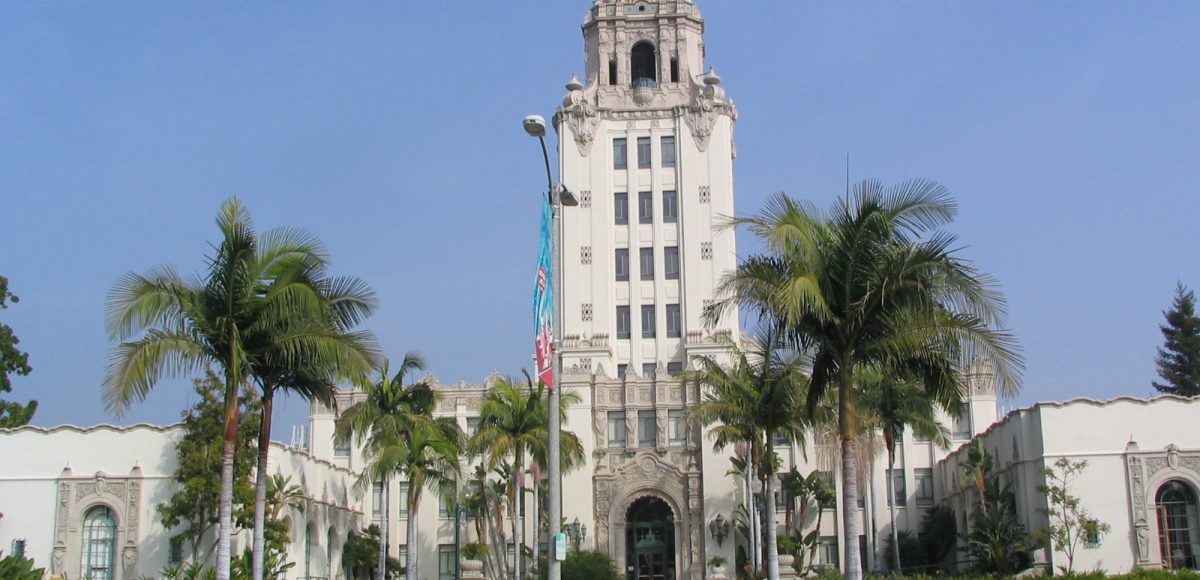The Beverly Hills City Council unanimously approved a resolution opposing the Nov. 12 ruling by the Court of Justice of the European Union (EU), which requires EU countries to identify food products made in Israeli settlements in the West Bank on the label of the product.
“This is no different than any other act of Anti-Semitic behavior,” said Councilman Julian Gold, underscoring that the labeling was in effect a boycott. “We find this behavior abhorrent and we will continue to point it out and call people to task who participate in it.”
Beverly Hills has a history of condemning Anti-Semitic behavior, including passing a resolution to oppose the United Nations’ resolution to deny Jewish historical and religious claims to the Temple Mount and the Western Wall in Jerusalem, and three years ago passing a resolution to combat the Boycott, Divestment, and Sanctions Israel Act of 2016. Further, in 2015 the City of Beverly Hills and the State of Israel jointly entered into a declaration to promote and strengthen bilateral collaboration, economic development, cultural relationships, and educational opportunities.
Mayor John Mirisch had requested the Council pass a resolution opposing the EU’s recent ruling.
“I find this whole discriminatory labeling so offensive that as an EU citizen I’m ashamed,” said Mirisch, who is also a citizen of Sweden. “I think we can and should make a strong statement.”
Before passing the resolution with a 5-0 vote, all five Council members advocated that the resolution be strongly worded.
The approved resolution states: “The City of Beverly Hills finds that this action is abhorrent for singling out Israel based solely on religion. It constitutes government-sanctioned Anti-Semitism and is equivalent to a boycott.” The resolution further calls upon the EU “to reconsider and revise the 2015 guidelines as they are discriminatory and Anti-Semitic in nature.”
In 2015, the EU issued guidelines to its members to label products identifying their origin to be from territories occupied by Israel. France became the first EU country to implement the guidelines.
Given the uptick in Anti-Semitism around the globe, Mirisch queried whether it might be possible for the U.S. to label products from EU countries that participate in the “discriminatory labeling” so that American consumers are aware of the level of Anti- Semitism in that country. For example, according to France’s interior ministry, there were 541 Anti-Semitic incidents in France in 2018.
“This is discriminatory treatment,” Councilman Bob Wunderlich said of the EU’s behavior. “Israel is held to a different standard and Israel is being singled out.”
“There are dozens of disputed territories throughout the world, yet it’s only Israel that’s being forced to have this labeling,” Mirisch added.
While Israel considers Gaza to be self-governing and the West Bank as disputed territory, Palestinians view those areas to be part of the Palestinian Nation, as do many countries. Recently, the U.S. took an unequivocal step away from that belief with Secretary of State Mike Pompeo declaring on Monday that the U.S. no longer considers Israeli settlements in the West Bank to be a violation of international law.
The EU’s Nov. 12 ruling involved a West Bank winery named Psagot, which together with a French-Jewish advocacy group appealed a decision in France in 2016 to implement the guidelines adopted by the EU in 2015 stating that food products generated from Israeli settlements be identified as such.
“I find this mortifying and quite disgusting,” Councilwoman Lili Bosse said of the EU Court’s decision.
The City plans to inform all the cities in L.A. County about the Beverly Hills resolution, in addition to advocating for the state and federal government to do whatever they can to get this policy reversed by putting pressure on the EU.
“Israel is the only democracy in the Middle East and this is clearly, clearly discriminatory and as strong a statement as we can possibly give, we should give,” said Vice Mayor Les Friedman.







